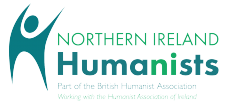
In response to a call for evidence from the Department of Education in Northern Ireland on the growth and development of integrated education, Northern Ireland Humanists has argued that integrated schools should become fully inclusive, not just of those from Catholic and Protestant backgrounds, but of those from minority religious and non-religious backgrounds too.
The review, which is due to be completed by the end of June this year, will assess the effectiveness of the current arrangements for integrated education and make a series of recommendations about how they can be improved upon in the future.
Defined in law as ‘the education together at school of Protestant and Roman Catholic pupils’, integrated education was introduced in 1989 and seeks to enrol equal numbers of Catholic and Protestant children, while also looking to include children from other backgrounds as well. However, given that, as the consultation document states, ‘integrated schools are not secular but are essentially Christian in character’, there is some way to go before even these schools can be said to be fully inclusive.
Northern Ireland Humanists’ response states that only catering for Protestant and Catholic communities ‘excludes the growing number of non-Christian and non-religious people in Northern Ireland’, adding that the ethos of integrated schools should be secular in nature, taking ‘no view on the truth or merit of any one religion or worldview over another’ but rather seeking ‘to imbue children with a sense of our shared values, common humanity, and the importance of mutual understanding, respect, and tolerance for those of different religions and beliefs.’
There are currently 63 integrated schools in Northern Ireland, but whilst Government guidelines state that the schools are expected to enrol at least 30% of their pupils from the ‘minority community’ in their area (i.e. Catholic or Protestant), over half of integrated schools currently have fewer than 30% enrolled. Pupils from neither of the ‘main traditions’ are referred to as ‘others’ in the documentation, and according to the Department’s figures, in nearly all integrated schools – 61 out of 63 – such pupils make up at least 10% of numbers, demonstrating that the schools have become a popular choice among the minority religious and non-religious communities of Northern Ireland.
Boyd Sleator of Northern Ireland Humanists commented, ‘Integrated education clearly represents the future of schooling in Northern Ireland, and we support the steps that are being taken to ensure that schools are places of integration and diversity, rather than segregation and division. If this ambition is to be realised, however, such schools need to be inclusive of all children, not just those from Christian backgrounds, and this will only increase in importance as Northern Ireland becomes more and more diverse. That’s exactly what we have set out in our response to this consultation, and we hope the Government will give it careful consideration.’
Notes
For further information or comment please contact British Humanist Association Education Campaigner Jay Harman on jay@humanists.uk or 0207 324 3078.
Read Northern Ireland Humanists full response: https://humanists.uk/wp-content/uploads/2016-04-13-FINAL-BHA-response-Review-of-integrated-education.pdf
Read more about the BHA’s campaigns work on ‘faith’ schools: http://humanists.uk/campaigns/religion-and-schools/faith-schools
Northern Ireland Humanists is part of the British Humanist Association, working with the Humanist Association of Ireland. The British Humanist Association is the national charity working on behalf of non-religious people who seek to live ethical and fulfilling lives on the basis of reason and humanity. It promotes a secular state and equal treatment in law and policy of everyone, regardless of religion or belief.
